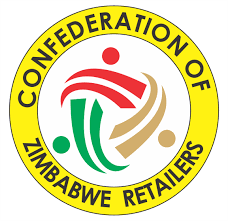CZR says urgent action needed to save retailers
The Confederation of Zimbabwe Retailers (CZR) has called for urgent interventions to address challenges weighing down the country’s retail sector, which it said stood at a critical crossroads.
CZR said the retail sector was battling several economic pressures, threatening its survival.
Despite the challenges, CZR said the retail sector remained a key part of Zimbabwe’s economy, ensuring food security, employment and revenue collection.
However, Reserve Bank of Zimbabwe Governor Dr John Mushayavanhu said the challenges in the country’s retail sector were not confined or entirely related to a difficult environment, but issues in some of the formal traders’ management systems and questionable decision-making.
While some of the retailers are battling viability challenges, others appear to be thriving, lending credence to some of the central bank governor’s assertions.
Dr Mushayavanhu said this as he announced, during the presentation of the 2025 Monetary Policy Statement, the extension of the targeted trade facility to the retail sector to assist with working capital.
The facility, previously set aside for productive sectors, can now also be used to buy foreign currency on the interbank market.
The central bank announced several interventions to anchor the prevailing economic stability, amid a tight monetary policy stance, complementing measures announced in the 2025 National Budget late last year.
Delivering a presentation on the state of affairs in the sector to the Tripartite Negotiating Forum Economic Cluster, CZR president Dr Denford Mutashu, in a statement read on his behalf by the lobby group’s acting CEO Mr Innocent Marimo, said exchange rate distortions, rising informality, multiple taxes and restrictive policies had created an environment where compliance had become more difficult at a time informal businesses are gaining ground.
“If urgent interventions are not implemented, we risk a complete collapse of the formal retail sector, leading to mass job losses, declining tax revenues and further economic instability,” he said.
Dr Mutashu said shop closures were growing at a disturbing rate, with major supermarket chains and wholesalers either scaling down operations or shutting down completely due to an unsustainable business environment.
“The high cost of compliance, excessive taxation, volatile exchange rates and an influx of unregulated informal competitors have left the formal retail sector struggling to remain viable.
“The selective enforcement of financial regulations, coupled with an inconsistent monetary policy framework, has further eroded confidence, leading to disruptions in supply chains and liquidity shortages.
“Despite these challenges, the retail sector remains a vital pillar of Zimbabwe’s economy, and immediate interventions are required to stabilise and restore confidence in the industry,” he said.
Dr Mutashu said CZR fully agreed with President Mnangagwa’s pronouncements during the first Cabinet meeting of 2025.
The President emphasised that permits and fees charges by regulatory entities should not be burdensome or prohibitive, but should be designed to facilitate growth of business enterprises.
He said the President’s recognition of this challenge was a commendable step towards creating a more business-friendly environment.
“The CZR strongly supports this commitment and urges the Government to follow through with tangible policy reforms that streamline licencing requirements, reduce bureaucratic hurdles and promote a simplified regulatory framework.
“By reducing red tape and eliminating unnecessary costs, Zimbabwe can enhance its ease of doing business ranking, attract investment, and ensure that formal retailers and wholesalers thrive in a competitive market,” said Dr Mutashu.
Presenting the key challenges affecting the retail sector and the implications of certain policies, Dr Mutashu said since the introduction of the Zimbabwe Gold (ZiG) currency on April 5, 2024, the retail and wholesale sector had been at the forefront of its acceptance.
Mr Mutashu said the sector had made significant strides in integrating ZiG into their pricing structures, ensuring its circulation and usability among consumers.
However, he said the strict regulatory controls imposed by the Exchange Control Act and the Financial Intelligence Unit (FIU) significantly limited the sector’s ability to price competitively.
Fear of being found in breach of the exchange control regulations forced businesses to adopt conservative pricing models.
“CZR strongly urges the Government to fully liberalise the exchange rate, allowing retailers and wholesalers to price their goods in a manner that reflects market realities.
The controlled exchange rate mechanism has not only created distortions but has also made it difficult for businesses to restock efficiently.
“Without full exchange rate liberalisation, the retail and wholesale sector will continue to struggle with profitability and sustainability, ultimately leading to further closures of businesses and reduced tax revenue for the government,” he said.
Dr Mutashu said the explosive growth of the informal economy has become both a challenge and an opportunity, and while it reflects the resilience and entrepreneurial spirit of Zimbabweans, its unregulated expansion has led to rampant smuggling, tax evasion, and unfair competition.
“Informal traders operate outside the tax and regulatory framework, selling goods at significantly lower prices than formal retailers who are burdened by high taxes, rental costs and compliance fees.
“The current policies are inadvertently rewarding informality at the expense of compliance because rather than punishing formal businesses with excessive taxation and restrictions, the Government should incentivise formalisation through a simplified presumptive tax model that encourages small businesses to transition into the formal economy,” he said.
He added that a structured tax system should be introduced to gradually integrate informal businesses into the tax base, ensuring a level playing field for all market players.
Dr Mutashu said the cost and ease of doing business remained significant concerns for the retail and wholesale sector, with excessive regulatory requirements and licensing fees placing a heavy financial and administrative burden on businesses.
He said currently, for a supermarket to be fully compliant with all operational requirements, it must obtain and maintain over 30 different licenses and permits from various regulatory authorities.
Dr Mutashu said these included health and safety permits, trading licenses, environmental certifications, fire safety clearances, and several sector-specific approvals.
“The sheer volume of these requirements not only increases the cost of doing business but also discourages investment and expansion, particularly for SMEs that struggle to meet compliance costs,” he said.
Dr Mutashu also said the current route to market (RTM) policies in Zimbabwe, which mandate that even regular walk-in customers provide VAT registration and tax clearance certificates to access wholesale prices, are inadvertently creating barriers to competitiveness.
He said these stringent requirements, while aimed at enhancing value chain integrity and ensuring tax compliance, have led to operational challenges for wholesalers.
“The necessity for all purchasers to furnish such documentation restricts the customer base, potentially reducing sales volumes and profitability for businesses operating within the formal economy.
“Moreover, these policies may inadvertently encourage informal trading activities, as smaller retailers and individual customers might seek alternative sources that do not impose such stringent requirements, thereby undermining the formal sector’s market share.”
Dr Mutashu said it is imperative to consider policy adjustments that balance the need for tax compliance with the realities of the business environment.
“One such adjustment could be the replacement of the existing 5 percent withholding tax with an annual presumptive tax. This shift would simplify the tax regime, making it more manageable for SMEs and informal traders to comply, thereby broadening the tax base,” he said.
Additionally, Dr Mutashu said mandating that all businesses obtain Taxpayer Identification Numbers (TINs) as a prerequisite for securing shop, trading, and liquor licenses would enhance the Zimbabwe Revenue Authority’s (ZIMRA) ability to monitor and track potential taxpayers effectively.
“Such measures would not only promote a more inclusive and competitive market but also ensure that tax compliance is achievable without stifling business operations,” he said.
Dr Mutashu said CZR had consistently advocated better alignment between monetary and fiscal policies, particularly regarding taxation on transactions, and the high Intermediated Money Transfer Tax (IMTT) continues to discourage the use of digital payment systems, pushing many businesses and consumers towards cash-based transactions.
He said CZR strongly pleads for the reduction of IMTT to 1 percent on US dollar transactions and its complete removal on ZiG transactions.
“The dual-taxation system, where businesses already face VAT and other statutory obligations, makes IMTT an additional burden that reduces competitiveness.”
He noted that eliminating IMTT on ZiG transactions would significantly boost financial inclusion, encourage formal business operations, and promote the broader adoption of electronic payment systems as well as confidence in the local currency.-herald










